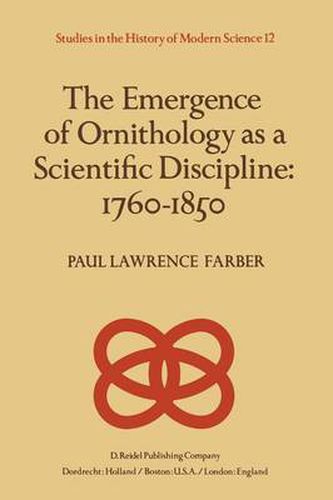Readings Newsletter
Become a Readings Member to make your shopping experience even easier.
Sign in or sign up for free!
You’re not far away from qualifying for FREE standard shipping within Australia
You’ve qualified for FREE standard shipping within Australia
The cart is loading…






This title is printed to order. This book may have been self-published. If so, we cannot guarantee the quality of the content. In the main most books will have gone through the editing process however some may not. We therefore suggest that you be aware of this before ordering this book. If in doubt check either the author or publisher’s details as we are unable to accept any returns unless they are faulty. Please contact us if you have any questions.
A number of years ago I began a project to derme and evaluate the impact of Buffon’s Histoire naturelle on the science of the late eighteenth and early nineteenth centuries. My attention, however, was soon diverted by the striking difference between the highly literary natural history of Buffon and the duller, but more rigor ous, zoology of his successors, and I began to try to understand this transformation of natural history into a set of separate scientific disciplines (geology, botany, ornithology, entomology, ichthyology, etc. ). Historical literature on the emergence of the biological sciences in the early nineteenth century is, unfortunately, scant. ! Indeed the entire issue of the emergence of scientific disciplines in general is poorly documented. A recent collection of articles on the subject states: One reason for this is, of course, that scientific development is a highly com plex process. Consequently, there has been a tendency for those engaged in its empirical study to select for close attention one strand or a small number of strands from the complicated web of social and intellectual factors at work. Many historians, for example, have dealt primarily with the internal development of scientific knowledge within given fields of inquiry. Sociologists, in contrast, have tended to concentrate on the social processes associated with the activities of scientists; but at the same time 2 they have largely ignored the intellectual content of science.
$9.00 standard shipping within Australia
FREE standard shipping within Australia for orders over $100.00
Express & International shipping calculated at checkout
This title is printed to order. This book may have been self-published. If so, we cannot guarantee the quality of the content. In the main most books will have gone through the editing process however some may not. We therefore suggest that you be aware of this before ordering this book. If in doubt check either the author or publisher’s details as we are unable to accept any returns unless they are faulty. Please contact us if you have any questions.
A number of years ago I began a project to derme and evaluate the impact of Buffon’s Histoire naturelle on the science of the late eighteenth and early nineteenth centuries. My attention, however, was soon diverted by the striking difference between the highly literary natural history of Buffon and the duller, but more rigor ous, zoology of his successors, and I began to try to understand this transformation of natural history into a set of separate scientific disciplines (geology, botany, ornithology, entomology, ichthyology, etc. ). Historical literature on the emergence of the biological sciences in the early nineteenth century is, unfortunately, scant. ! Indeed the entire issue of the emergence of scientific disciplines in general is poorly documented. A recent collection of articles on the subject states: One reason for this is, of course, that scientific development is a highly com plex process. Consequently, there has been a tendency for those engaged in its empirical study to select for close attention one strand or a small number of strands from the complicated web of social and intellectual factors at work. Many historians, for example, have dealt primarily with the internal development of scientific knowledge within given fields of inquiry. Sociologists, in contrast, have tended to concentrate on the social processes associated with the activities of scientists; but at the same time 2 they have largely ignored the intellectual content of science.